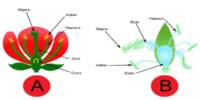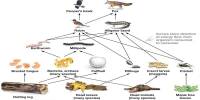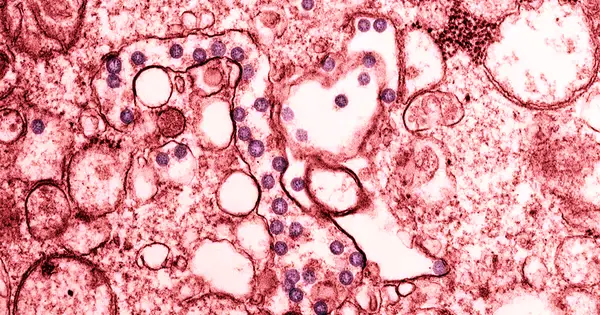According to researchers from Georgia State University’s Center for Translational Antiviral Research and the Institute for Biomedical Sciences, the composition of the gut microbiota determines how vulnerable mice are to respiratory virus infections and the severity of these infections.
The findings, published in the journal Cell Host & Microbe, show that segmented filamentous bacteria, a bacterial species present in the intestines, protect mice from influenza virus infection either acquired spontaneously or given.
This immunity also extended to respiratory syncytial virus (RSV) and severe acute respiratory syndrome coronavirus 2 (SARS-CoV-2), the virus that causes COVID-19. The study discovered that segmented filamentous bacteria required immune cells in the lungs known as basally resident alveolar macrophages to sustain their protection.
In this work, the researchers looked into how differences in certain microbial species can affect the outcomes of respiratory virus infections, a topic that had previously been poorly defined. They tested mice with distinct microbiome variations as well as mice with solely segmented filamentous bacteria present or absent. Viral titers in the lung were measured several days after infection and varied dramatically according to the microbiome of the various animal groups.
We find it remarkable that the presence of a single common commensal bacterial species, amidst the thousands of different microbial species that inhabit the mouse gut, had such strong impacts in respiratory virus infection models and that such impacts were largely attributable to reprogramming of basally resident alveolar macrophages.
Dr. Richard Plemper
“These findings uncover complex interactions that mechanistically link the intestinal microbiota with the functionality of basally resident alveolar macrophages and severity of respiratory virus infection,” said Dr. Andrew Gewirtz, co-senior author of the study and Regents’ Professor in the Institute for Biomedical Sciences at Georgia State.
The study found that in segmented filamentous bacteria-negative mice, basally resident alveolar macrophages were quickly depleted as respiratory virus infection progressed. However, in segmented filamentous bacteria-colonized mice, basally resident alveolar macrophages were altered to resist influenza virus infection depletion and inflammatory signaling.
The basally resident alveolar macrophages disabled the influenza virus, in large part by activating a component of the immune system referred to as the complement system.

“We find it remarkable that the presence of a single common commensal bacterial species, amidst the thousands of different microbial species that inhabit the mouse gut, had such strong impacts in respiratory virus infection models and that such impacts were largely attributable to reprogramming of basally resident alveolar macrophages,” said Dr. Richard Plemper, co-senior author of the study, Regents’ Professor and director of the Center for Translational Antiviral Research at Georgia State. “If applicable to human infections, these findings will have major implications for the future risk assessment of a patient to advance to severe disease.”
“We find it highly unlikely that segmented filamentous bacteria is the only gut microbe capable of impacting the phenotype of alveolar macrophages, and consequently, proneness to respiratory virus infection,” Gewirtz said in a statement. “Rather, we predict that the makeup of the gut microbiota has a broad influence on susceptibility to respiratory virus infection. Microbiota-mediated programming of basally resident alveolar macrophages may not only affect the severity of acute respiratory virus infection, but may also be a long-term health determinant.”
The principal authors of the study were virologist Carolin M. Lieber of the Center for Translational Antiviral Research and immunologist Vu L. Ngo of Georgia State’s Institute for Biomedical Sciences. Other contributing authors were Hae-ji Kang and Michal Kuczma of the Institute for Biomedical Sciences at Georgia State and Kaori Sakamoto of the University of Georgia.
The study is funded by the National Institutes of Health’s National Institute of Allergy and Infectious Diseases.
















